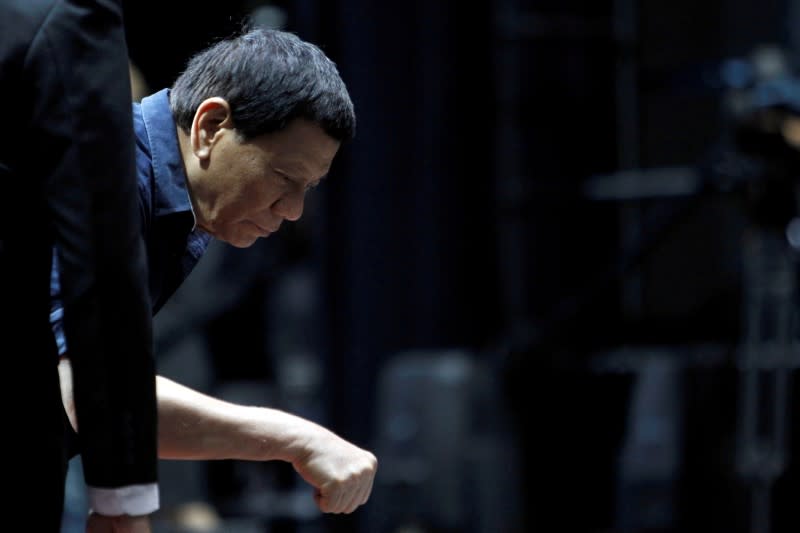Philippines again suspends scrapping of troop pact with U.S. amid China dispute
By Karen Lema and Idrees Ali
MANILA/WASHINGTON (Reuters) -The Philippines has again suspended a decision to scrap a crucial agreement governing the U.S. troop presence in the country, its foreign minister said on Monday, amid continuing maritime pressure from China.
The Pentagon welcomed the announcement from Manila - the third suspension of the decision covering the two-decade-old Visiting Forces Agreement (VFA) that had been due to expire in August - but analysts said there would be disappointment in both countries that it was not renewed.
Philippine Foreign Minister Teodoro Locsin said the suspension would be for a further six months while President Rodrigo Duterte "studies, and both sides further address his concerns regarding, particular aspects of the agreement".
The Philippines is a U.S. treaty ally and several military agreements are dependent on the VFA, which provides rules for the rotation of thousands of U.S. troops in and out of the Philippines for war drills and exercises.
Having the ability to rotate in troops is important not only for the defence of the Philippines, but strategically for the United States when it comes to countering China's increasingly assertive behaviour in the region.
"The Department welcomes the government of the Philippines' decision to again suspend termination of the Visiting Forces Agreement," Pentagon spokesman John Kirby said in a statement.
"We value the Philippines as an equal, sovereign partner in our bilateral alliance. Our partnership contributes not only to the security of our two nations, but also strengthens the rules-based order that benefits all nations in the Indo-Pacific."
MARITIME TENSIONS
Greg Poling, a maritime security expert at Washington's Center for Strategic and International Studies, said there would be frustration in Washington and most of the Philippine government.
"It isn't the worst possible scenario, obviously, but Philippine officials were really signalling that they were confident they had reached a deal Duterte would get on board with, and instead everyone has to remain in limbo for at least another six months," he said.
Poling said he did not think there was any substantive issue holding up an agreement.
"It is now as simple as Duterte doesn't seem to want it, but everyone else does. If he won't reverse course but he also doesn't want to waste political capital on an unpopular decision heading into election season, then kicking the can down the road is his preferred option."
Duterte told Washington last year he was cancelling the deal amid outrage over a senator and ally being denied a U.S. visa, but he has repeatedly suspended the expiration date.
The latest suspension comes at a time of continued tensions between Manila and Beijing over disputed waters in the South China Sea and a U.S. announcement last week that the Philippines would be among countries that would receive millions of COVID-19 vaccines it is donating.
Ties between Washington and its former colony have been complicated by Duterte's rise to power in 2016 and his frequent condemnation of U.S. foreign policy and embrace of China, which has nevertheless continued to pressure his country's maritime boundaries.
Manila has repeatedly protested what it calls the "illegal" and "threatening" presence of hundreds of Chinese "maritime militia" vessels inside its exclusive economic zone.
Jose Manuel Romualdez, Manila's ambassador to Washington, told Reuters this month the VFA had been revamped to make it "acceptable" and "mutually beneficial" to both countries.
Manila has in the past been unhappy about issues such as a lack of jurisdiction over U.S. personnel who commit crimes in the Philippines and environmental damage during maritime drills.
(Reporting by Karen Lema in Manila; additional reporting by Idrees Ali and David Brunnstrom in Washington; Editing by Nick Macfie and Alex Richardson)

 Yahoo News
Yahoo News 

